Climate change

Even as the clock ticks down to COP 21 in Paris this coming December, agreement has yet to be reached about exactly what the conference could or should accomplish. There is little consensus concerning outcomes that might actually bring about change. Not unlike other issues where binary thinking has predominated, we are presented with an either/or scenario: economic collapse and damaging human impact, or economic prosperity and destructive impact on climate.
What is different now, however, is that the economic axis has shifted. Crucial to the Paris discussions is the fact that Western-driven economic theory and practice, rooted in the competitive polarities of prosperity versus paucity, now dominate the globe, while Western economies themselves do not. And it is this largely binary economic way of framing the issues of the environment that militates against significant accomplishment in Paris. Not unlike Copenhagen in 2009, or Kyoto in 1997, governments are posturing so as not to give away economic advantage. National prosperity continues to trump the environment.

The prophets’ preoccupation with justice and righteousness has its roots in a powerful awareness of injustice. That justice is a good thing, a fine goal, even a supreme ideal, is commonly accepted. What is lacking is a sense of the monstrosity of injustice. Moralists of all ages have been eloquent in singing the praises of virtue. The distinction of the prophets was in their remorseless unveiling of injustice and oppression, in their comprehension of social, political, and religious evils. —Abraham Joshua Heschel, The Prophets
Injustice anywhere is a threat to justice everywhere. We are caught in an inescapable network of mutuality, tied in a single garment of destiny. Whatever affects one directly, affects all indirectly. —Martin Luther King, Jr.
According to the U.S. Environmental Protection Agency, environmental justice is defined as:
The fair treatment and meaningful involvement of all people regardless of race, color, national origin, or income with respect to the development, implementation, and enforcement of environmental laws, regulations, and policies.
As we consider this definition, and look around our communities, do we find this fair treatment taking place? Are we aware of how economic and environmental decisions are made? Many times it can become so overwhelming that we think it best to leave it to the experts. Unfortunately, this can lead to exploitation, as discrimination typically takes place in poor and underserved communities where people may not understand their rights, or they choose not to fight back out of fear. As we dig deeper and the shackles are removed, we begin to see how economic and environmental justice are connected and how this exploitation is directly related to incentives like government funding, tax breaks, and land grabs that favor corporations over human beings and the environment. Does the end result benefit all God’s creation or just a wealthy few?
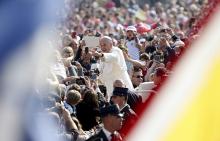
The Vatican is set to host a major conference on climate change this month that will feature leading researchers on global warming and an opening address by U.N. Secretary-General Ban Ki-moon.
The meeting, which the Vatican detailed on its website late on April 14, is another sign of Pope Francis’ “green agenda” and another potential red flag for conservatives who are already alarmed over an expected papal teaching document on the environment that is scheduled for release this summer.
The one-day summit on April 28 will also include participants from major world religions and aims to “elevate the debate on the moral dimensions of protecting the environment in advance of the papal encyclical,” as the papal document is known.
Another goal, says a statement on a Vatican website, is to highlight “the intrinsic connection between respect for the environment and respect for people — especially the poor, the excluded, victims of human trafficking and modern slavery, children, and future generations.”

Fifty years ago, the sleeping giant of America’s religious communities shook off their sleep and rose to change the country in a crisis over whether democracy would grow or falter.
Today we face a crisis over the very fabric of life – human and more-than-human – on our planet. Is there anything the religious communities, now yawning their way just beginning to awake, can bring to dealing with that crisis?
There is. Much of it comes from the Hebrew Scriptures, what Christians call “the Old Testament.” It reaches a climax in the Exodus story, recalled each year in the Jewish festival of Passover and to some extent in the Holy Week that in Christian tradition is rooted in Passover. But it pervades the Hebrew Bible.
For that is the record of the spiritual struggles of an indigenous people of shepherds and farmers in their relationship with YyyyHhhhWwwwHhhh, the Holy One Who breathes all life. They centered their God connection in sacred relationship with their land, especially through the foods they grew and then offered on the altar.
Our own generation, facing a catastrophic crisis in the Earth-earthling relationship, must go back to the Bible for guidance on how to apply indigenous wisdom to the planet as a whole.

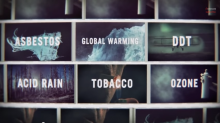
In one scene in the new documentary Merchants of Doubt, Michael Shermer, the publisher of Skeptic magazine, explains what he thinks is the underlying factor behind climate change skepticism.
“It isn’t about the science,” Shermer, a libertarian and former skeptic who came around on the issue in 2006, tells director Robert Kenner.
“It’s about me being a consistent team member; showing the members of my tribe that you can count on me.”
Tribalism is an important part of the equation. But Kenner, whose previous film was the well-regarded Food, Inc., believes corporate spin is just as much to blame.
Merchants of Doubt aims to show viewers how the same PR tactics that kept the tobacco industry thriving for decades are now being used to encourage climate change skepticism and denial. While the film does important work in helping audiences understand how paid representatives spread misinformation, it doesn’t do enough to address the tribalism that may keep the film’s most necessary audiences from seeing it.
READ Sojourners' interview with Merchants of Doubt Director Robert Kenner here.
To his credit, Kenner does an excellent job at making the subject matter appealing. He uses the framework of close-up magic as a metaphor for the way PR representatives work to cover up industry-damaging facts, first for tobacco, and then for coal, oil, and other clients. He interviews journalists, scientists, and lobbyists whose stories are at once fascinating and infuriating. There are even some sources, like conservative former South Carolina Rep. Bob Inglis, who manage to help the film build bridges with audiences whose tribal identity might require them to skew towards climate skepticism.
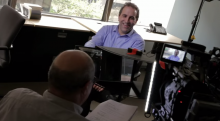
Robert Kenner is the director of the new corporate spin documentary Merchants of Doubt, now in theaters. The film explores how representatives of large industries create doubt on contentious issues like climate change by presenting themselves to the media as independent researchers. Kenner’s previous film, Food Inc., examined similarly sticky issues of truth and transparency in the food industry. Sojourners sat down with Robert Kenner after Doubt's Washington, D.C., premiere to discuss the nature of doubt and the rise of corporate involvement in media narrative-making.
This interview has been edited for length and clarity.
Abby: Why did you want to use the tobacco industry to introduce audiences to the world of corporate spin? And why go from there to climate change?
Kenner: I see this as a film about this class of doubters, how there are these very talented people who are very successful at what they do. We just had a screening at the Columbia Journalism School, and someone there said that for every journalist, there’s 4.5 PR reps.
There used to be more journalists than PR reps — and some of these reps are now being paid by the people they used to investigate. So in effect, we’re looking at multiple industries. We could have spent as much time on pharmaceuticals or the food industry.
I was also certainly interested in the notion of how you can have these things like tobacco, like certain pharmaceutical issues, or like climate, where the science is clear yet the doubt persists. How do you maintain doubt when the science is clear that it’s about something else? What are the factors? And it turns out there multiple, of which money is one of the biggest.
Part of it is tribal, but that was true with gay rights, too, and all of a sudden six years later things have changed. I’m feeling kind of optimistic that it can change around the issue of climate from that perspective.
But the thing that interested me most was how media could represent issues as if they were debates when they weren’t debates.
READ Sojourners' review of Merchants of Doubt here.


1. PHOTOS: Painter Immortalized Last Meals of 600 Prisoners Put to Death
Artist Julie Green collects information published in death-row inmates’ death notices about their last moments. She then puts cobalt blue paint to porcelain plates to illustrate their final meals — from pizza and birthday cake to Jolly Ranchers. Her goal: “to continue paining fifty plates a year until capital punishment is abolished.”
2. Net Neutrality Victory Is Civil Rights History in the Making
“Today’s civil rights activists have a much more powerful tool at our disposal – the open Internet. Our ability to be heard, counted, and visible in this democracy now depends on an open Internet, because it allows voices and ideas to spread based on their quality – not the amount of money behind them.”
3. WATCH: It Turns Out Lighting Affects Color
And lots of other things, actually. If you’re still hashing it out with your roommates or spouse about the color of #TheDress, here’s science (and music!) to the rescue. (Team #whiteandgold!) Also, if you need more science, you can always ask Science Mike, who offers this great video explainer.
4. Activists Warn of End of Christian Presence in Middle East
Following ISIS’ kidnapping of at least 90 Assyrian Christians in an attack on about 35 mostly Assyrian settlements, groups in the region warn that we may be witnessing the end of Christian presence in the region: “After the Iraq war of 2003, and since the Syrian crisis began, the persecution unleashed on them – including extortion, kidnappings, murder, the ethnic cleansing of entire swaths of Baghdad, the Nineveh plains, and now much of north-east Syria, has been so vast that their very existence in their ancestral homelands is in grave peril.”
5. In 23 States, the Largest Religious Group Is Now ‘Unaffiliated’
This, according to Public Religion Research Institute’s just-released American Values Atlas, which breaks down various religious and political demographics. Find out the largest religious group in your state at the link!
6. WATCH: Jim Inhofe’s Snowball Has Disproven Climate Change Once and For All
That one time a United States senator — the one who also happens to be the chairman of the environment committee — threw a snowball while on the floor to dispute climate change. Because snow.
7. An Anti-ISIS Summit in Mecca
“Whether ISIS’s deeds are labeled ‘violent extremism’ or ‘Islamized terrorism,’ the conversations in Washington and Mecca had at least one thing in common: They deepened the debate over whether ISIS and its fellow travelers are ‘Islamic,’ and whether the answer matters in the first place. That debate is not just academic. It has real consequences for how the Islamic State’s opponents mount their counteroffensive.”
8. VIDEO: Banksy Goes Undercover in Gaza, Releases MIni-Documentary
The unidentified street artist Banksy has re-emerged in Gaza to create a political mini-documentary about life inside the war-torn region.
9. Why We Must Change How We Change the World
World Relief President and CEO Stephan Bauman’s new book Possible: A Blueprint for Changing How We Change the World is now out. In this piece, he lays out why he is hopeful about the future of efforts to address injustice: “We are caught in a vicious cycle, a dangerous dynamic that shapes our views about the people who experience suffering. As a result, those trapped in poverty are dehumanized and poverty is dumbed down while good, well-intended people really believe they are caring, world-conscious, and ethical. But change is coming.”
10. 10 Things Catholics Are Tired of Hearing
Why do you worship statues? Why do you pray to Mary instead of God? And more confusion in the Protestant understanding of Catholicism. Handy to bookmark for the next inevitable conversation about the purpose of confession or the Apocrypha.
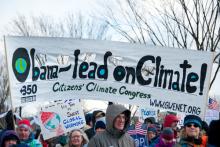
Like Jim Wallis, I believe that budgets are moral documents. They reflect our deepest values. Like budget decisions, climate decisions are moral decisions — decisions that affect the environment reveal our moral commitments.
How does Barack Obama measure up on the ‘moral leadership for the environment’ scorecard?
President Obama vetoed the Keystone XL pipeline on Tuesday. He also forged a historic agreement with Chinese Presidenta Xi Jinping in November to reduce carbon emissions in the U. S. by 26-28 percent from 2005 levels by 2025. He has worked with the auto industry to put historic fuel economy standards into place. When he wasn’t able to convince Congress to pass environmental legislation, he worked behind the scenes — using the Clean Air Act of 1970 to set tougher environmental standards. All of these actions give him points for moral leadership.
At the same time, some criticized Obama earlier in his presidency for not doing enough. In 2011, Al Gore published an article in Rolling Stone magazine saying Obama had “thus far failed to use the bully pulpit to make the case for bold action on climate change.” During the first two years of his administration, many environmental activists expected more legislation to slow climate change. Cole Stangler argues that, even given legislative obstacles, Obama could have done more through federal agencies.
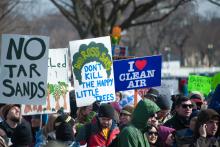
“This veto is conclusive proof that activism works.”
That’s what May Boeve, executive director of 350.org, said in response to Obama’s veto, which was only the third of his presidency. President Obama rejected the construction of the Keystone XL Feb. 24, angering the Republican majority in Congress and inspiring environmental activists.
“After four years of rallies, marches, sit-ins, and civil disobedience, we’re thrilled to see President Obama take an important first step by vetoing this love letter to Big Oil,” she continued.
Boeve’s comments declare hope to a generation of environmental scientists and activists who have often struggled to draw serious political attention to climate change.
Republicans in Congress, on the other hand, were deeply disappointed with Obama’s behavior.
1. Because Extreme Cold Always Brings Climate Deniers Out of the Woodwork …
Bill Nye, yep, the Science Guy, offers the media this helpful prompting: “‘Let’s not confuse or interchange climate change with global warming,’ noting that when the climate changes, ‘some places get colder.’”
2. After the Copenhagen Synagogue Shooting, This Muslim Community Is Responding in the Best Way Possible
“Islam is about protecting our brothers and sisters, regardless of which religion they belong to. Islam is about rising above hate and never sinking to the same level as the haters. Islam is about defending each other. Muslims want to show that we deeply deplore all types of hatred of Jews, and that we are there to support them.”
3. Afghan Civilian Deaths Hit Record High
2014 was the deadliest year on record for civilians in Afghanistan, according to the U.N. Total civilian casualties jumped 22 percent from 2013.
4. Ash Wednesday: To Be Seen
“… revelation does happen and ... we see. We see that we have always been seen by God. God holds us and beholds us even when it can be so hard for us to hold and behold God.”

Editor's Note: In this latest edition of our “Disinvest/Reinvest” series, John Elwood reflects on how – and why – he divested from fossil fuels. You can sign up for the final week of our Christian Divestment e-course here.
Investments shape souls. Jesus tells us so.
“For where your treasure is, there your heart will be also.” Matthew 6:21
Over the years, these words of Jesus have kept me away from the “merchants of death” and conflict minerals and steered me toward ethical products of many sorts. In recent years, however, a more sinister and pervasive threat has come into focus. Climate scientists in 2014 warned that energy companies like Exxon, Shell, PetroChina and Chevron – which derive their value from enormous reserves of recoverable fossil fuels – will have to leave about 80 percent of those precious reserves in the ground if the world is to have a chance of avoiding global climate mayhem.
That means that four out of every five barrels of oil, or tons of coal, or cubic feet of natural gas that these companies have discovered and developed must eventually be written off.
The market value of fossil fuel reserves today is valued at around $27 trillion, a sum that dwarfs the famous U.S. national debt. This means that there is a very, very bad day of reckoning ahead for someone. Either all of humanity will endure unspeakable suffering, or those who invest in the fossil-fuel companies will suffer huge losses.
It became clear to me that investing in fossil fuels is no longer a retirement strategy or a way of mitigating market risks. It is a decision whether to align my soul with unfathomable harm to virtually all of humanity and to all of God’s beloved creation. If I’ve got my own personal slice of those carbon reserves (whether by buying a share of ExxonMobil or by investing in a mutual fund that does), I make money, or avoid big losses, only if the entire creation groans and suffers under the weight of climate calamity.
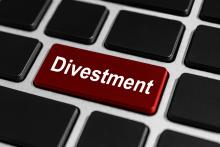
By now, you may have heard that Jim Wallis and Sojourners have stopped funding climate change by divesting from fossil fuels. Unfortunately, for millions of Christians who invest at faith-based financial institutions, fossil-free investing just isn’t an option.
We’ve done our research. Of the 13 major Christian investment companies we studied, not a single one offers a way for their members to opt out of fossil fuels. We think Christian investment companies should be the FIRST to stop funding climate change! Read our open letter and sign below.
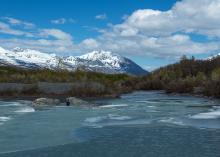
Recently President Obama proposed giving wilderness status to 12 million acres of the Artic National Wildlife Refuge.
Many Republican senators, including Alaska Sen. Lisa Murkowski, strongly oppose the president’s proposal. Much of the opposition is expressed as frustration and outrage that the president is hindering Alaskans from having control over their economic future. Sen. Murkowski asserts:
What’s coming is a stunning attack on our sovereignty and our ability to develop a strong economy that allows us, our children and our grandchildren to thrive. … It’s clear this administration does not care about us, and sees us as nothing but a territory. … I cannot understand why this administration is willing to negotiate with Iran, but not Alaska. But we will not be run over like this. We will fight back with every resource at our disposal.
The ANWR is home to significant untapped petroleum reserves that lie beneath the land the president is seeking to protect. This fight between protecting the ANWR and promoting economic growth and development through oil drilling is one that has been going on between Democrats and Republicans for years.
Alaska Gov. Bill Walker said in a statement he may be forced to accelerate oil and gas permitting on state lands to compensate for the new federal restrictions.
While I believe I understand the arguments made by advocates on both sides, it seems to me there is a fundamental ideological (and possibly theological) premise that often goes unacknowledged in these debates.
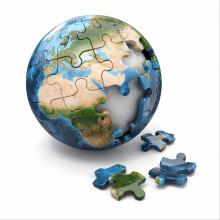
There could not be a more important year for climate action. It’s now or never. The future of our planet and the people, places, and things that we love depend on all of us working together to demand a healthy, just, and vibrant planet home. It impacts everything else – immigration and migration due to drought, flooding, sea level rise, and worsening storms; war and conflict over natural resources; access to drinkable water; food insecurity, hunger, and agriculture; disaster relief. It even impacts the sex trade — when women have to walk farther and farther to find water, they’re more vulnerable to rape and kidnapping in many regions.
So here we are, now. Governments, scientists, universities, companies, our military, and thousands of non-profit organizations are all scrambling to save the very integrity of God’s creation, the composition of the atmosphere God so magnificently created to support life on earth. And Christians are barely even at the table. We need to be at the table.
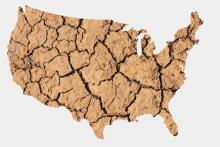
Last night I watched the State of the Union, because I live in D.C., and this is our Super Bowl. My roommate, who works on women’s rights, was listening for any mention of her "issues." And I’m no different: I tuned in to the president’s address to hear what he would have to say about climate change.
And he did have a lot to say! This is what he said:
"And no challenge — no challenge — poses a greater threat to future generations than climate change.
"2014 was the planet’s warmest year on record. Now, one year doesn’t make a trend, but this does — 14 of the 15 warmest years on record have all fallen in the first 15 years of this century.
"I’ve heard some folks try to dodge the evidence by saying they’re not scientists; that we don’t have enough information to act. Well, I’m not a scientist, either. But you know what — I know a lot of really good scientists at NASA, and NOAA, and at our major universities. The best scientists in the world are all telling us that our activities are changing the climate, and if we do not act forcefully, we’ll continue to see rising oceans, longer, hotter heat waves, dangerous droughts and floods, and massive disruptions that can trigger greater migration, conflict, and hunger around the globe. The Pentagon says that climate change poses immediate risks to our national security. We should act like it."
What struck me was that it’s now totally normal for the President of the United States to speak firmly and at length about the clear and present danger of climate change.
Look at how far we’ve come! This is real progress — this is a cultural shift. This is a victory.
But this Monday, I marked Martin Luther King Day by reading the Letter from a Birmingham Jail with members of a neighborhood church. And I heard Dr. King admonishing me for my celebration.
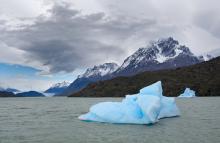
Catholic environmental groups from around the world on Jan. 14 announced a new global network to battle climate change just as many Catholic conservatives are sharply criticizing Pope Francis’ campaign to put environmental protection high on the church’s agenda.
“We are certain that anthropogenic (human-made) climate change endangers God’s creation and us all, particularly the poor, whose voices have already spoken of the impacts of an altered climate,” the new Global Catholic Climate Movement says in its mission statement.
“Climate change is about our responsibility as God’s children and people of faith to care for human life, especially future generations, by caring for all of God’s wondrous creation,” the statement continues.
The GCCM said it intends to push for international treaties to battle global warming but said it is approaching the issue from a moral and biblical perspective and hopes to “encourage the conversion of hardened hearts.”
That could be a tall order in light of current arguments over climate change in U.S. politics and in the American church.
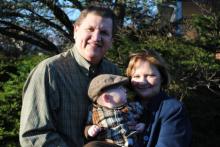
Evangelicals are teaming up with environmentalists to support the Obama administration’s Clean Power Plan to substantially reduce carbon dioxide emissions from coal-burning power plants.
The Rev. Mitchell Hescox, president and CEO of the Evangelical Environmental Network, submitted comments from more than 100,000 “pro-life Christians” who he said are concerned about children’s health problems that are linked to unclean air and water.
“From acid rain to mercury to carbon, the coal utility industry has never acted as a good neighbor and cleaned up their mess on their own,” Hescox told reporters on Dec. 1. “Instead of acting for the benefit of our children’s lives, they’ve internalized their profits while our kids (have) borne the cost in their brains, lungs and lives.”
Despite recent findings that almost four in 10 evangelicals remain skeptical about climate change, Hescox said the comments he provided to the Environmental Protection Agency reflect a belief that “climate change is the greatest moral challenge of our time.”